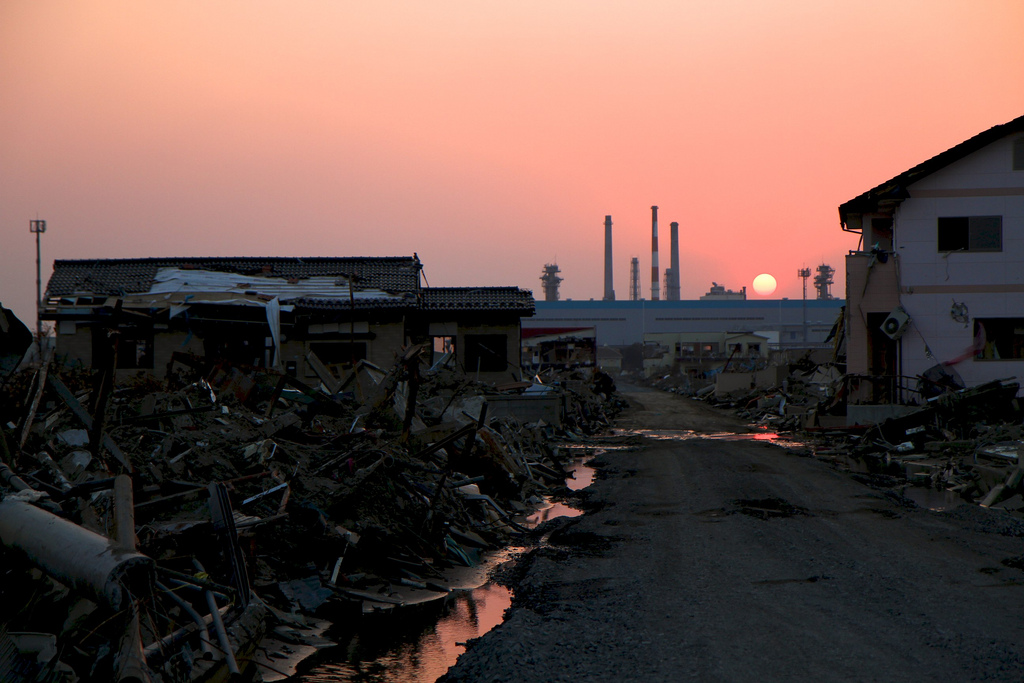One year ago this week, on March 11, 2011, Japan experienced its most devastating earthquake in over a thousand years. The quake brought a tsunami that killed tens of thousands and a nuclear meltdown that required the complete evacuation of several small towns.
It was the perfect crisis in which the world’s information network needed to be tested. The tsunami came only minutes after the quake, and the difference between life and death for those outrunning the tsunami was literally seconds. Those who heard about the tsunami needed to warn others as quickly as possible… but how to get those messages across? And how could people fleeing without televisions stay informed about aftershocks and evacuations?
Sankei News reports that only 17 minutes after the first vibrations of the earthquake, a middle school boy in Hiroshima started up a UStream channel to broadcast an illegal, pirate stream of NHK News. In Japan, these pirate streams are a serious offense, but the boy, whose mother survived the Hanshin earthquake of 1995, felt he had a moral duty to do whatever he could to help save people in Tohoku from the tsunami. Soon, thousands of Twitter users were linking to the stream.
Rather than shutting it down, at 5:20PM, the NHK’s official Twitter account linked to the pirate stream. The account’s operator told Sankei that “certainly I thought the link might get me fired, but I realized that if I could save even one life it was the right thing to do.” Indeed, nobody was fired; NHK gave UStream official approval to continue the stream at 6PM, and began free broadcasting directly to UStream at 9PM. Following the NHK’s lead, over the following days a total of twelve local and national TV stations in Japan streamed their emergency live news broadcasts on UStream. And it all started because of one teenage pirate.
Obviously, news stations can’t say they approve of piracy outright; now that there is no disaster, says NHK’s chief of technology, there is “no interest at all” in providing an Internet stream of their programming. But the humble president of NHK, Masayuki Matsumoto, confides that the next time a disaster happens they’ll “definitely react in a way appropriate to the circumstances.”
Source: Sankei News (Japanese). Photo by Roger Walch.




Wow this is a beautiful story of common sense and basic human instinct prevailing over unadulterated balderdash.
I wonder how people can hear of others doing the right thing in spite of Authority and yet insist that Authority is all that protects us from each other’s evil.
Wow, that kid no doubt saved thousands of lives! Brings a whole new meaning to the sharing is caring motto.
“certainly I thought the link might get me fired, but I realized that if I could save even one life it was the right thing to do.”
This really made me smile…I wish this was a mentality adopted more often.
[…] året satt jag klistrad vid tvn, och tittade mest på BBC, som sände framförallt NHK-sändningar. Denna historia jag precis läste, visar Internets kraft, särskilt om människor är fria användare, och att […]
[…] Did a Pirate TV Stream Save Lives During the Japan Tsunami? – Falkvinge on Infopolicy. Share this:ShareLike this:LikeBe the first to like this post. By gaian • Posted in […]
[…] Did a Pirate TV Stream Save Lives During the Japan Tsunami? – Falkvinge on Infopolicy. […]